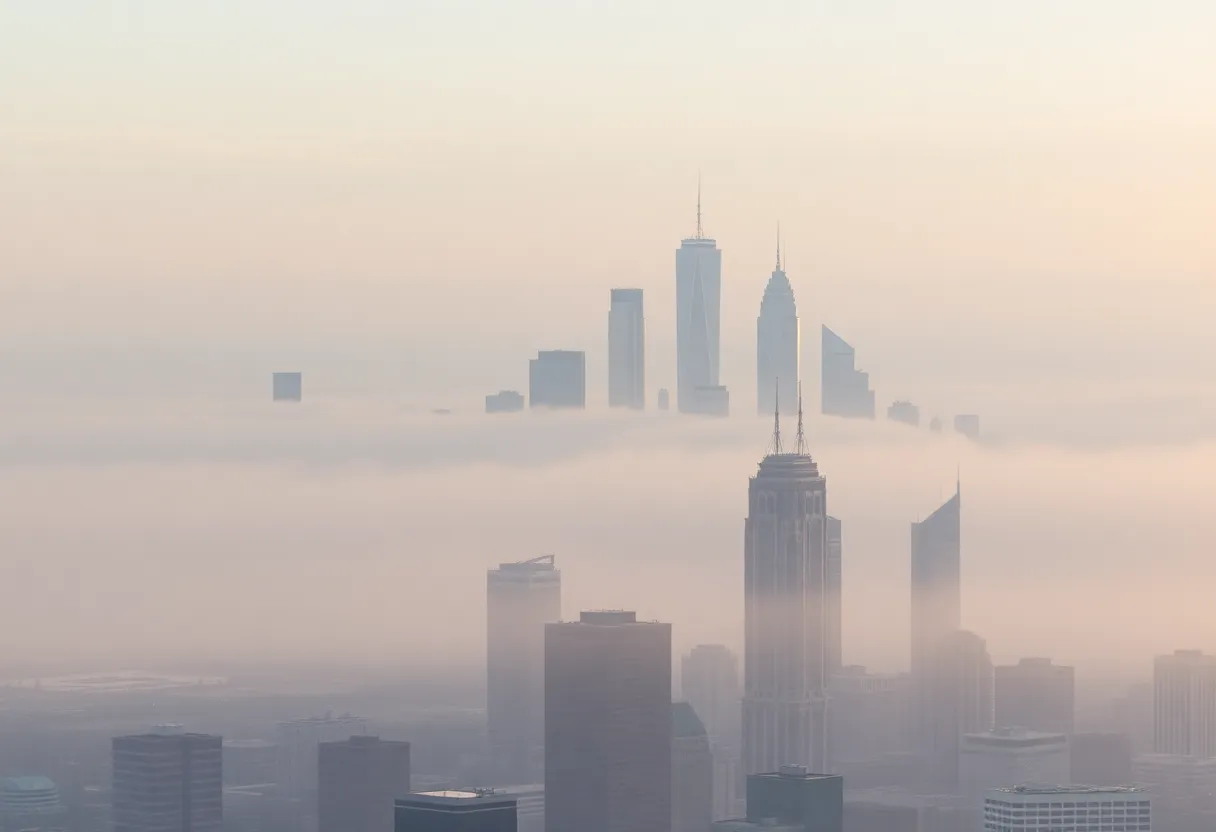News Summary
Recent findings reveal that twelve Texas counties have exceeded federal air quality standards for particulate matter. The Texas Commission on Environmental Quality is proposing exemptions for eight counties, raising concerns about potential manipulation of air quality data. With the U.S. EPA lowering allowable particulate matter levels, the implications for health and environment are significant. Public opinions are being sought as TCEQ prepares its recommendations, leaving Texas residents in a crucial conversation about air quality and health.
Texas Cities at a Crossroads: Air Quality Standards Under Scrutiny
In the bustling state of Texas, the air quality conversation is heating up as environmental regulators weigh in on the health of our lungs. Recent data revealed that twelve Texas counties have exceeded the federal air quality standards for particulate matter, often referred to as soot. This is alarming, given that these tiny particles primarily come from diesel engines, wildfires, construction sites, coal-fired plants, and industrial activities. They’re more than just a nuisance—they are linked to serious health risks that can affect breathing and overall well-being.
The Proposal: A Mixed Bag for Texas Counties
The Texas Commission on Environmental Quality (TCEQ) is on the verge of making a significant decision regarding how Texas manages its air quality. Surprisingly, they are proposing that only four counties—Dallas, Harris (which includes the larger Houston area), Tarrant (home to Fort Worth), and Bowie (where Texarkana lies)—take action to improve air quality. That leaves eight counties to be exempt from stricter federal pollution rules, including Travis (Austin), Montgomery (Conroe), Kleberg (Kingsville), Harrison (Marshall), Ellis (Waxahachie), Webb (Laredo), Hidalgo (McAllen), and Cameron (covering Harlingen and Brownsville).
Reasons for Exemptions: The Fine Print
You might be wondering why so many counties are getting a pass. TCEQ has cited either poor air monitoring data or something called “exceptional events” as reasons for these exemptions. These exceptional events can include wildfires, dust storms, or even emissions that drift in from outside Texas, temporarily skewing air quality readings. According to TCEQ’s proposed assessment, they looked at air quality data collected between 2021 and 2023 to come to these conclusions.
The New Standards: What’s at Stake?
In a significant move, the U.S. Environmental Protection Agency (EPA) has recently lowered the allowable level of particulate matter in the air from 12 to 9 micrograms per cubic meter annually. This is the first update since 2012 and is part of the current administration’s commitment to environmental reform. Despite this, TCEQ initially reported that all twelve troubled counties were out of compliance but later revised their findings to focus only on four. Harris County, unfortunately, comes out on top, with the highest average particulate matter levels in Texas at an alarming 12.5 micrograms per cubic meter over three years.
Concerns and Criticism: A Closer Look
This development has not passed without concern. Some researchers and environmental advocates argue that TCEQ might be manipulating the idea of exceptional events to sidestep tougher regulations. They stress that reliable air quality monitoring is essential in understanding the real situation, noting that while Texas boasts one of the largest air monitoring networks in the U.S. with 215 sites, only 54 are specifically measuring particulate matter.
The Road Ahead: What Comes Next?
TCEQ must submit its recommendations to the EPA by February 7, 2025, and public opinions are being collected until January 21. After that, it’s a waiting game as the compliance plan will require EPA approval and could take two to three years to develop. This raises questions about the future enforcement of pollution standards, especially given the potential changes under different administrations. Meanwhile, local organizations like the Clean Air Force of Central Texas are hard at work, aiming to promote cleaner air solutions through community-driven initiatives.
As residents of Texas, staying educated about these regulations and participating in discussions is crucial to ensuring our air remains as clean as possible. After all, everyone deserves to breathe clean air, and it’s a collective effort to make sure that happens!
Deeper Dive: News & Info About This Topic
HERE Resources
Coalition ‘Fund Schools First’ Advocates for School Funding in Texas
Austin Says Goodbye to Black Star Co-op Brewpub
Georgetown Introduces New Propane-Powered Buses
Brass Peacock Opens in Downtown Georgetown
Georgetown, Texas: A Community on the Rise
Georgetown ISD Introduces Propane-Powered School Buses
Georgetown ISD Plans for New Schools Amid Growth
Georgetown Voters Approve $649.5 Million School Bond Package to Enhance Education Facilities and Technology
Georgetown Independent School District Secures Grant for Eco-Friendly Propane School Buses
Georgetown ISD Introduces Propane-Powered School Buses
Additional Resources
- KXAN: Keeping Central Texas Air Clean
- Wikipedia: Air Quality
- Houston Chronicle: Houston Texas Air Quality Map Tracker
- Google Search: Texas Air Quality
- Austin Monitor: Smog Got You Down? Austin Air Quality Issues
- Google Scholar: Air Pollution Texas
- CBS Austin: Air Pollution Restrictions in Travis County
- Encyclopedia Britannica: Environmental Regulations
- KSAT: South Texas Air Quality and Smoke from Mexico
- Google News: EPA Air Standards







